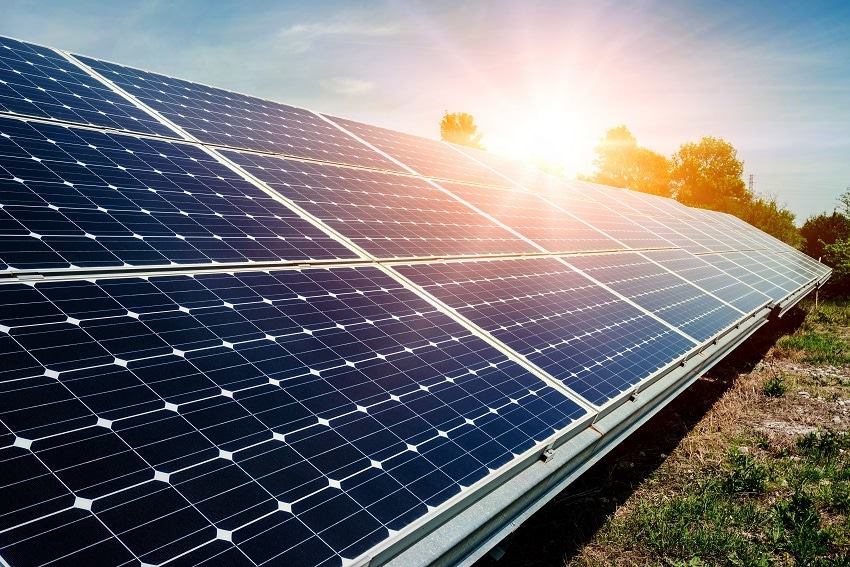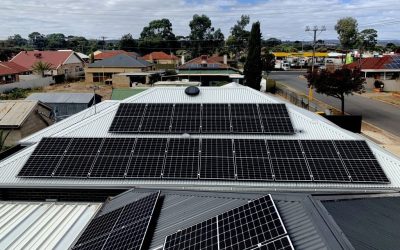Solar panels are an increasingly popular choice for generating electricity in homes and businesses around the world. In Australia, the installation of solar panels has been growing rapidly in recent years, thanks to the country’s abundant sunshine and government incentives. However, as with any type of technology, there is a question of what happens to solar panels when they reach the end of their useful life. Can they be recycled, or do they end up in landfills?
It is estimated that there will be around 145,000 tonnes of solar panel waste entering the Australian waste stream annually by 2030. As such, there is a growing demand for recycling options for solar panels in Australia.
The good news is that solar panels can indeed be recycled in Australia. In this blog post, we will take a closer look at the process of solar panel recycling and its benefits.
What Happens to Solar Panels at the End of Their Life?
Solar panels are designed to last for many years, typically between 20 and 25 years. However, over time, the efficiency of the panels may decrease, making them less effective at generating electricity. When this happens, the panels are no longer considered to be useful, and they need to be disposed of.
The process of disposing of solar panels is known as solar panel recycling. Solar panel recycling involves breaking down the panel into its component materials, which can then be separated and processed for reuse. These materials include glass, aluminium, copper, and various types of plastic.
Why is Solar Panel Recycling Important?
Solar panel recycling is important for a number of reasons. Firstly, it helps to conserve resources. Solar panels are made from a variety of materials, many of which are non-renewable. By recycling solar panels, we can recover and reuse these materials, rather than extracting new raw materials from the earth.
Secondly, solar panel recycling helps to reduce the amount of waste that ends up in landfills. When solar panels are disposed of in a landfill, they take up valuable space and can take hundreds of years to decompose. By recycling solar panels, we can help to reduce the amount of waste in landfills and protect the environment.
Finally, solar panel recycling helps to reduce the environmental impacts of solar panel production. The manufacturing process for solar panels requires energy and resources, and it can also produce harmful emissions. By recycling solar panels, we can reduce the need for new solar panels to be produced, which helps to reduce the overall environmental impact of the industry.
How is Solar Panel Recycling Done in Australia?
There are a number of companies in Australia that specialise in the recycling of solar panels. These companies typically have the necessary equipment and expertise to safely and effectively dismantle and recycle solar panels. However, Australia does currently have a limited number of recycling facilities.
The process of solar panel recycling typically involves the following steps:
- Collection: The first step in the process is to collect the solar panels that need to be recycled. This can be done through a variety of methods, including picking up the panels directly from customers, or working with solar panel installation companies to collect panels that have been removed from rooftops.
- Transportation: Once the solar panels have been collected, they are transported to a recycling facility. This is typically done by truck or rail.
- Dismantling: At the recycling facility, the solar panels are carefully dismantled in order to separate the different materials. This process is done manually, and it typically involves removing the glass, aluminium, copper, and plastic components of the panel.
- Separation: Once the materials have been separated, they are cleaned and sorted into different categories. For example, the glass may be separated from the aluminium, and the different types of plastic may be separated from each other.
- Processing: Once the materials have been separated, they are processed to remove any impurities and prepare them for reuse. This process varies depending on the specific material being recycled, but it may involve melting, purification, or other methods.
- Reuse: The final step in the solar panel recycling process is to reuse the recovered materials in the production of new products. The recycled materials can be used in a wide variety of applications, including the production of new solar panels, as well as other products such as aluminium cans, copper wire, and plastic products.
Where to Recycle Solar Panels in Australia
There are a number of companies in Australia that specialise in the recycling of solar panels. These companies typically have the necessary equipment and expertise to safely and effectively dismantle and recycle solar panels.
Reclaim PV, SolaCycle, CMA Ecocyce, lPV Industries, and Ecoactiv are the main companies who currently recycle solar panels.
If you have solar panels that you need to dispose of, it is important to do so responsibly by using a reputable recycling company. This will ensure that some of the materials are properly recovered and reused, rather than ending up in a landfill. However, at present they can only recycle and reclaim a small percentage: up to 17% of a panel by weight according to Sustainability Victoria. The solar panel aluminium frame and junction box are the components that are most commonly or easily recycled.
Can Solar Panels be repaired?
Solar panels can sometimes be repaired, depending on the specific problem that they are experiencing. However, in many cases, it may be more cost-effective to replace the solar panel rather than attempting to repair it.
What About Recycling Solar Batteries?
Like solar panels, solar batteries can be recycled when they reach the end of their lifespan. The recycling process for solar batteries is similar to the process for recycling other types of batteries, and it involves breaking down the battery into its component parts and recovering the valuable materials. If you are experiencing problems with your solar panel, it is recommended to contact a professional solar panel installer in Sydney if you’re in the region or a company near you.
Solar Panel Recycling: Conclusion
Solar panels are a valuable source of renewable energy, but like any technology, they do eventually reach the end of their lifespan. Fortunately, solar panels can be recycled in Australia, helping to conserve resources, reduce waste and emissions. With new technology innovations in the future we hope that more solar panel materials can be recovered and reused in the process.






